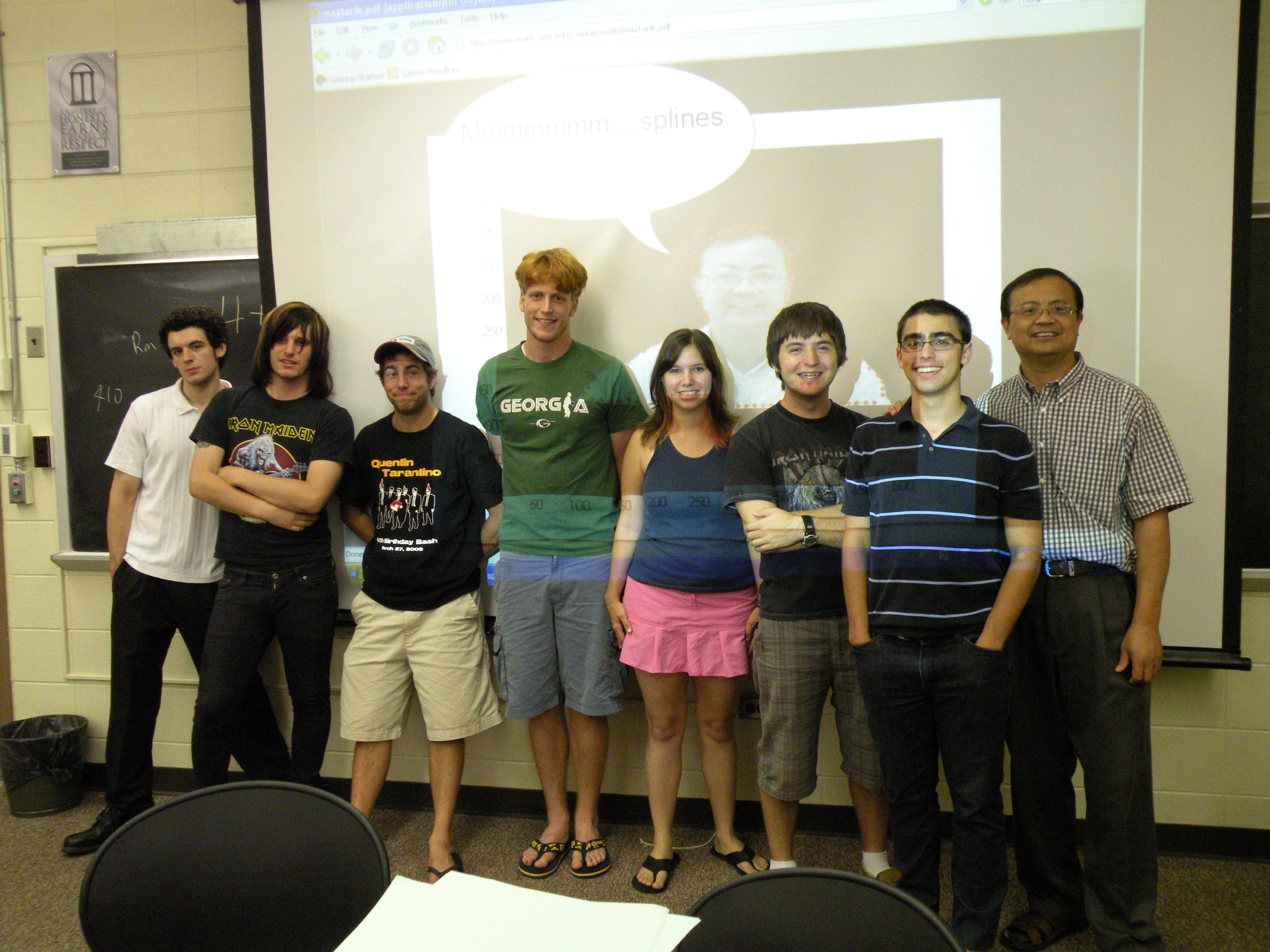Teaching
Classes I teach many courses for undergraduate and graduate students. For graduate students I mainly teach Advanced Numerical Analysis courses such as Numerical Linear Algebra, Numerical Approximation, Numerical Solution of PDE's, Wavelets Analysis, and Numerical Optimization.
Students Nineteen Ph.D. students have graduated under my supervision. They are in order of seniority, Dr. Wenjie He, Dr. Xiangming Xu, Dr. Gerard Awanou, Dr. V.Baramidze, Dr. K. Nam, J. Zhou, O. Cho, H. P. Liu, J. B. Wu, Bree Ettinger, Louis Y. Liu, Qianying Hong, and Leopold Matamba Messi, George Slavov, James Lanterman, Abraham Varghese, Daniel Mckenzie, Clayton Mersmann, and Yidong Xu. . Dr. Wenjie He is currently an associate professor at the University of Missouri, St. Louis. Dr. Xiangming Xu is a chief scientist in a company working on signal and image communications. The research work of Dr. Awanou's dissertation won him the best student paper award. He won a prestigeous Sloan fellowship in 2009. Dr. Awanou is a full professor at University of Illinois, Chicago now. V. Baramidze obtained the Graduate Student Excellence in Research Award from the University of Georgia. Dr. Leopold Matamba Messi is now a postdoc at Mathematical Bioscience Institute at Ohio State University. Dr. G. Slavov works for a Hedge fund company in Bogarlia. Dr. A. Varghese is an assistant professor at a region university in Viginia. Dr. J. Lanterman works for IHG. Dr. Clayton Mersmann is an instructor for University of South Florida, St. Petersburg, Florida. Dr. Daniel Mckenzie is a postdoc at UCLA. Dr. Yidong Xu returnd to his hometown, Shanghai, China to work.
Internships I have sent one student to the Boeing company and one student to NASA Langley Reserach center for internship.
Postdoc my Ph.d. students got a postodoc training at Institute of Mathematics and Applications(IMA), University of Minnesota and Mathematical Biology Institute(MBI), Ohio State Univiersity.
I have supervised 7 undergraduate students, Katie Agle, Dustin Burns, Coop Cunliffe, Grant Fiddyment, Max Mautner, and Tarik Trent for an NSF REU program during the summer of 2008. Their research work can be found here.
